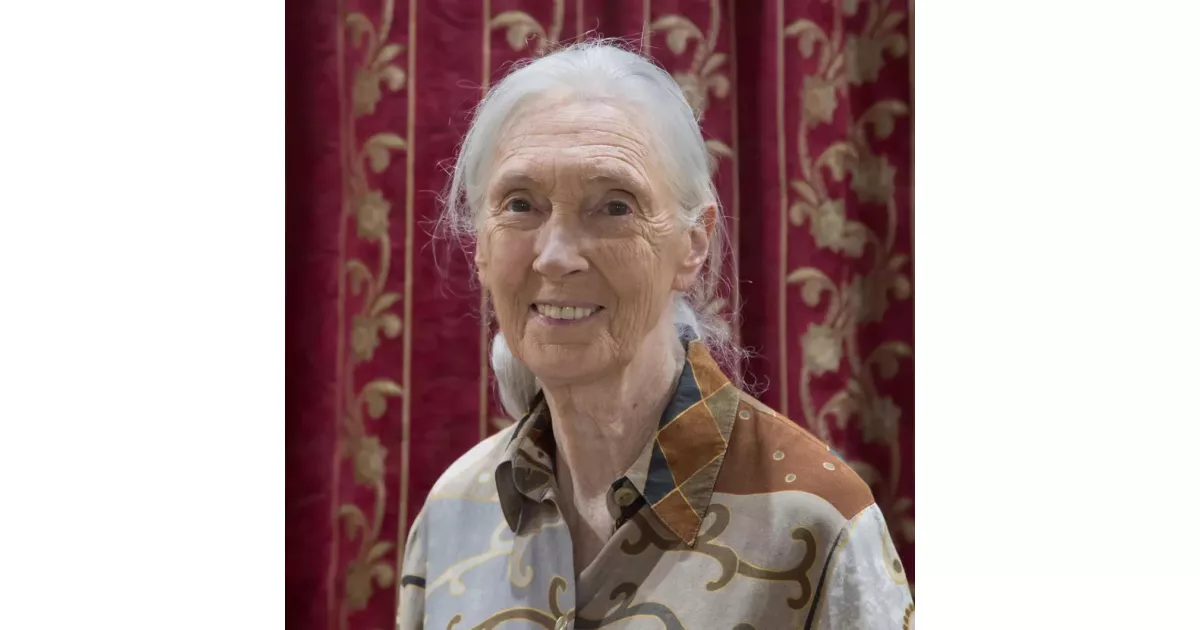How Jane Goodall built a successful career. Explore key moments that defined the journey.
Jane Goodall is a renowned English primatologist, zoologist, and anthropologist, considered the world's leading expert on chimpanzees. Beginning her research in 1960 at Gombe Stream National Park in Tanzania, she has dedicated over 60 years to studying the social and family lives of wild chimpanzees. Her groundbreaking work revolutionized our understanding of these primates, demonstrating their complex behaviors and intelligence. Goodall is also a dedicated conservationist and advocate for animal welfare, working to protect chimpanzees and their habitats through the Jane Goodall Institute and her Roots & Shoots program.
1958: Leakey sends Goodall to London for primate studies
In 1958, Louis Leakey arranged for Jane Goodall to study primate behavior with Osman Hill and primate anatomy with John Napier in London, preparing her for her future research.
July 1960: Goodall goes to Gombe Stream National Park with her mother
On 14 July 1960, Jane Goodall, accompanied by her mother, went to Gombe Stream National Park to study chimpanzees, becoming the first of The Trimates.
1960: Goodall begins studying chimpanzees in Gombe
In 1960, Jane Goodall began her study of chimpanzee social and family life in Gombe Stream National Park, Tanzania, focusing on the Kasakela chimpanzee community.
1960: Goodall goes to Gombe Stream National Park
In 1960, Jane Goodall first went to Gombe Stream National Park in Tanzania to observe chimpanzees in their natural habitat, marking the beginning of her extensive research.
1962: Goodall attends University of Cambridge
In 1962, Louis Leakey arranged funding for Jane Goodall to attend the University of Cambridge to pursue a PhD without having a prior bachelor's degree.
1964: Goodall receives Bachelor of Arts degree
By 1964, Jane Goodall received her Bachelor of Arts degree in natural sciences from Newnham College, Cambridge.
1966: Goodall completes PhD thesis
In 1966, Jane Goodall completed her PhD thesis on the Behaviour of free-living chimpanzees, detailing her first five years of study at the Gombe Reserve.
1977: Establishment of Jane Goodall Institute
In 1977, Jane Goodall established the Jane Goodall Institute (JGI) to support Gombe research and protect chimpanzees and their habitats.
1986: Attended Understanding Chimpanzees conference
In 1986, Jane Goodall credited the Understanding Chimpanzees conference for shifting her focus from observation to a broader concern with animal-human conservation.
1990: Publication of memoir, Through a Window
In 1990, Jane Goodall described the 1974-1978 Gombe Chimpanzee War in her memoir, "Through a Window: My Thirty Years with the Chimpanzees of Gombe", publishing her findings revolutionised contemporary knowledge of chimpanzee behaviour.
1991: Roots & Shoots programme begins
In 1991, the Roots & Shoots programme began when a group of teenagers met with Jane Goodall in Dar es Salaam to discuss environmental problems.
1992: Founded Tchimpounga Chimpanzee Rehabilitation Centre
In 1992, Jane Goodall founded the Tchimpounga Chimpanzee Rehabilitation Centre in the Republic of Congo to care for chimpanzees orphaned due to the bush-meat trade.
1993: Goodall's decision to name animals
In 1993, Jane Goodall wrote about her decision to name the chimpanzees she studied instead of assigning numbers, defying the convention of avoiding emotional attachment.
1994: Founded Lake Tanganyika Catchment Reforestation and Education project
In 1994, Jane Goodall founded the Lake Tanganyika Catchment Reforestation and Education (TACARE) project to protect chimpanzee habitat by reforesting hills around Gombe and educating communities on sustainability.
1998: Goodall becomes president of Advocates for Animals
In 1998, Jane Goodall became the president of Advocates for Animals, an organization based in Edinburgh, Scotland.
2000: Founded Ethologists for the Ethical Treatment of Animals
In 2000, Jane Goodall, along with Professor Mark Bekoff, founded the organisation Ethologists for the Ethical Treatment of Animals to ensure the safe and ethical treatment of animals during ethological studies.
2004: Goodall dedicates time to advocacy
As of 2004, Jane Goodall dedicated virtually all of her time to advocacy on behalf of chimpanzees and the environment, traveling extensively. She also joined the advisory council for Save the Chimps sanctuary.
2008: Gave lecture entitled "Reason for Hope"
In 2008, Jane Goodall gave a lecture entitled "Reason for Hope" at the University of San Diego. She also demanded the European Union end medical research on animals and fund alternative methods.
2009: Goodall writes about farm animal intelligence
In 2009, Jane Goodall wrote in "The Inner World of Farm Animals" about the awareness and intelligence of farm animals, advocating for their respect and help.
2010: Goodall petitions to list all chimpanzees as endangered
In 2010, Jane Goodall, through JGI, formed a coalition to petition for all chimpanzees, including those in captivity, to be listed as endangered.
2011: Goodall becomes patron of Voiceless
In 2011, Jane Goodall became a patron of the Australian animal protection group Voiceless, expressing her concern about factory farming.
2012: Goodall joins Engage in Conservation Challenge
In 2012, Jane Goodall took on the role of challenger for the Engage in Conservation Challenge with The DO School, working to engage young people in conserving biodiversity.
2017: Goodall becomes Disneynature ambassador
As of 2017, Jane Goodall was an ambassador for Disneynature, continuing her advocacy for environmental causes.
2017: Wrote foreword for 'The Intelligence of the Cosmos'
In 2017, Jane Goodall wrote the foreword to 'The Intelligence of the Cosmos' by Ervin Laszlo, where she expressed her belief in an Intelligence driving evolution and a Supreme Being.
2018: Partnered with Schmidt's Naturals
In 2018, Jane Goodall partnered with Michael Cammarata on natural product lines from Schmidt's Naturals to benefit the Jane Goodall Institute.
August 2019: Honoured with a bronze sculpture
In August 2019, Jane Goodall was honored with a bronze sculpture in Midtown Manhattan for her contributions to science. She was featured alongside nine other women as part of the Statues for Equality project.
2019: Primatology field nearly evenly split between men and women
By 2019, the field of primatology consisted of almost evenly men and women. This development is thanks to Jane Goodall's trailblazing work and encouragement of young women to join the field.
2020: Advocated for Ecocide to be made an International Crime
In 2020, Jane Goodall advocated for ecocide, defined as the mass damage or destruction of nature, to be recognized as an international crime. Additionally, in 2020, Goodall vowed to plant 5 million trees as part of the World Economic Forum's 1 trillion tree initiative.
2020: Partnered with Neptune Wellness Solutions
In 2020, Jane Goodall partnered with Michael Cammarata on natural product lines from Neptune Wellness Solutions to benefit the Jane Goodall Institute.
October 2021: Joined Rewriting Extinction campaign
In October 2021, Jane Goodall joined the Rewriting Extinction campaign to fight climate and biodiversity crisis through comics. She contributed to "The Most Important Comic Book on Earth: Stories to Save the World", released on October 28, 2021, by DK.
2021: Called on EU Commission to abolish caging of farm animals
In 2021, Jane Goodall called on the EU Commission to abolish the caging of farm animals.
2022: Goodall joined board of Nonhuman Rights Project
In 2022, Jane Goodall joined the board of the Nonhuman Rights Project. She worked for the organization until her death in 2025.
2022: Received the Stephen Hawking Medal for Science Communication
In 2022, Jane Goodall received the Stephen Hawking Medal for Science Communication for her long-term study of social and family interactions of wild chimpanzees.
October 2024: Gave "A Speech for History" at UNESCO
In October 2024, Jane Goodall gave "A Speech for History" at UNESCO, delivering an optimistic message on conservation and the role everyone can play by educating youth and communities to protect the natural world.
Mentioned in this timeline
Lego is a line of plastic construction toys created by...
Africa is the second-largest and second-most populous continent home to...
Tanzania officially the United Republic of Tanzania is an East...
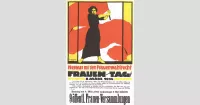
International Women's Day IWD observed annually on March th commemorates...
Kenya officially the Republic of Kenya is an East African...

Chicago is the most populous city in Illinois and the...
Trending
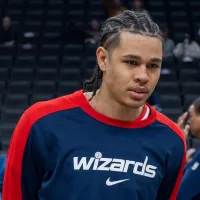
34 minutes ago Kyshawn George's Injury Update: Cleared to Play After Toe Issue
4 months ago Trump defends Tucker Carlson's Nick Fuentes interview amid antisemitism concerns.
34 minutes ago Fire at US embassy in Riyadh after drone strike amid Iran-US tensions.
35 minutes ago Julian Reese's Two-Way Contract: Angel Reese's Inspiring Message and Wizards' New Addition
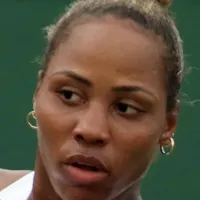
2 hours ago Peyton Stearns, Texas Longhorn, triumphs at ATX Open, securing second WTA title.
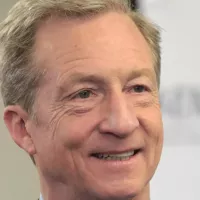
3 hours ago Tom Steyer's California plan faces criticism while he spends millions on governor's race.
Popular

Jesse Jackson is an American civil rights activist politician and...

Hillary Diane Rodham Clinton is a prominent American politician lawyer...

Jim Carrey is a Canadian-American actor and comedian celebrated for...

XXXTentacion born Jahseh Dwayne Ricardo Onfroy was a controversial yet...

Kashyap Pramod Patel is an American lawyer who became the...

Barack Obama the th U S President - was the...
